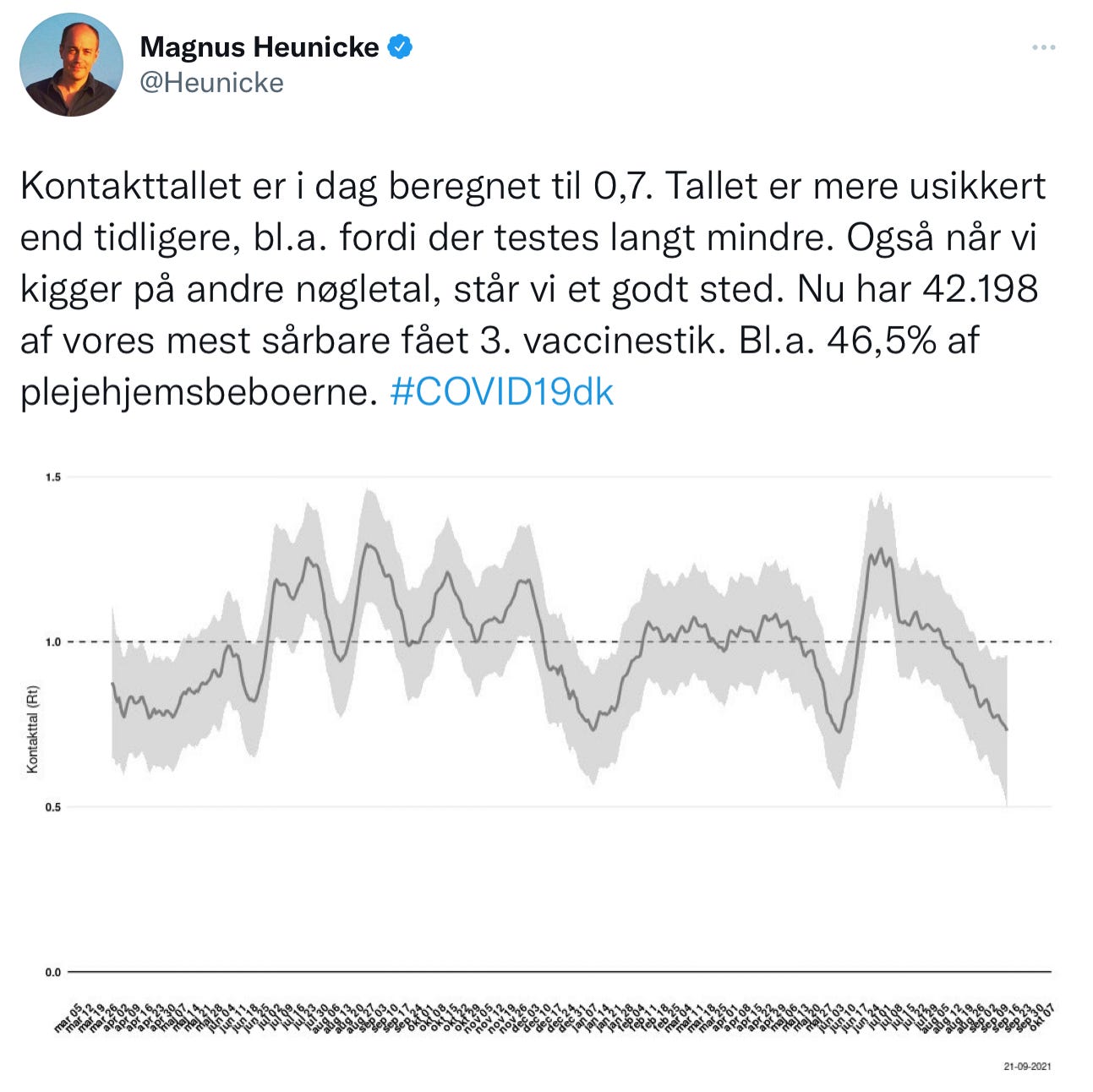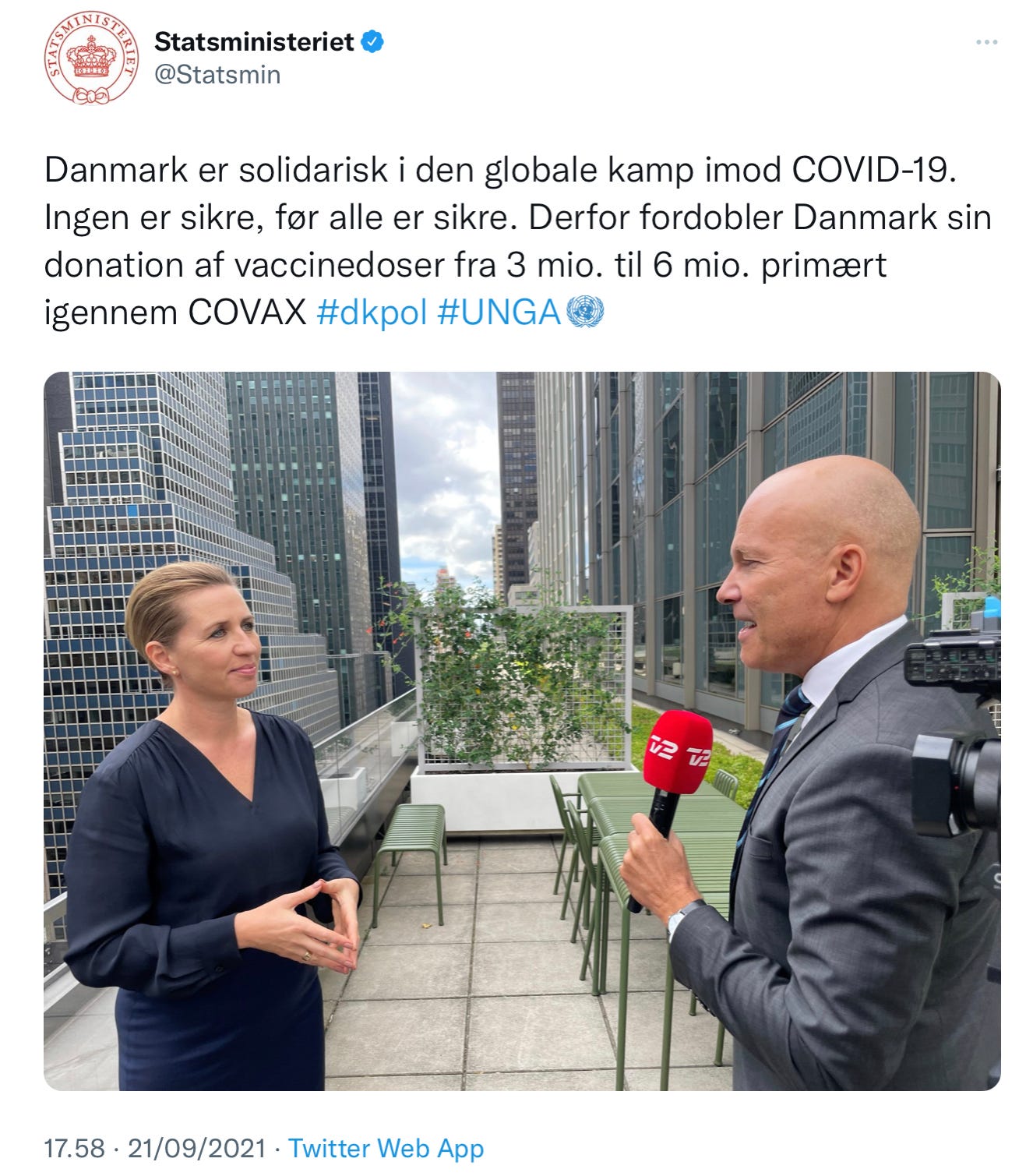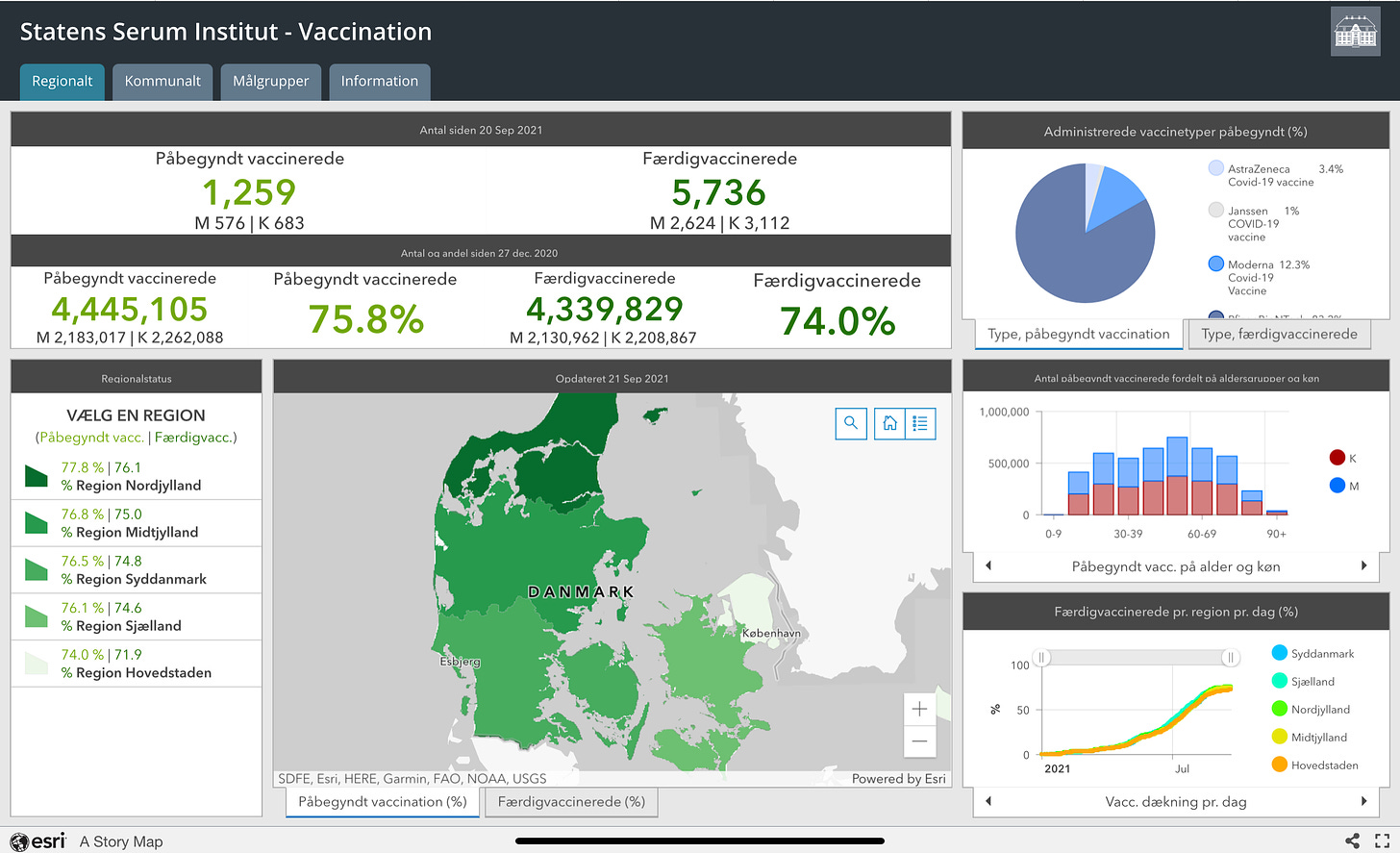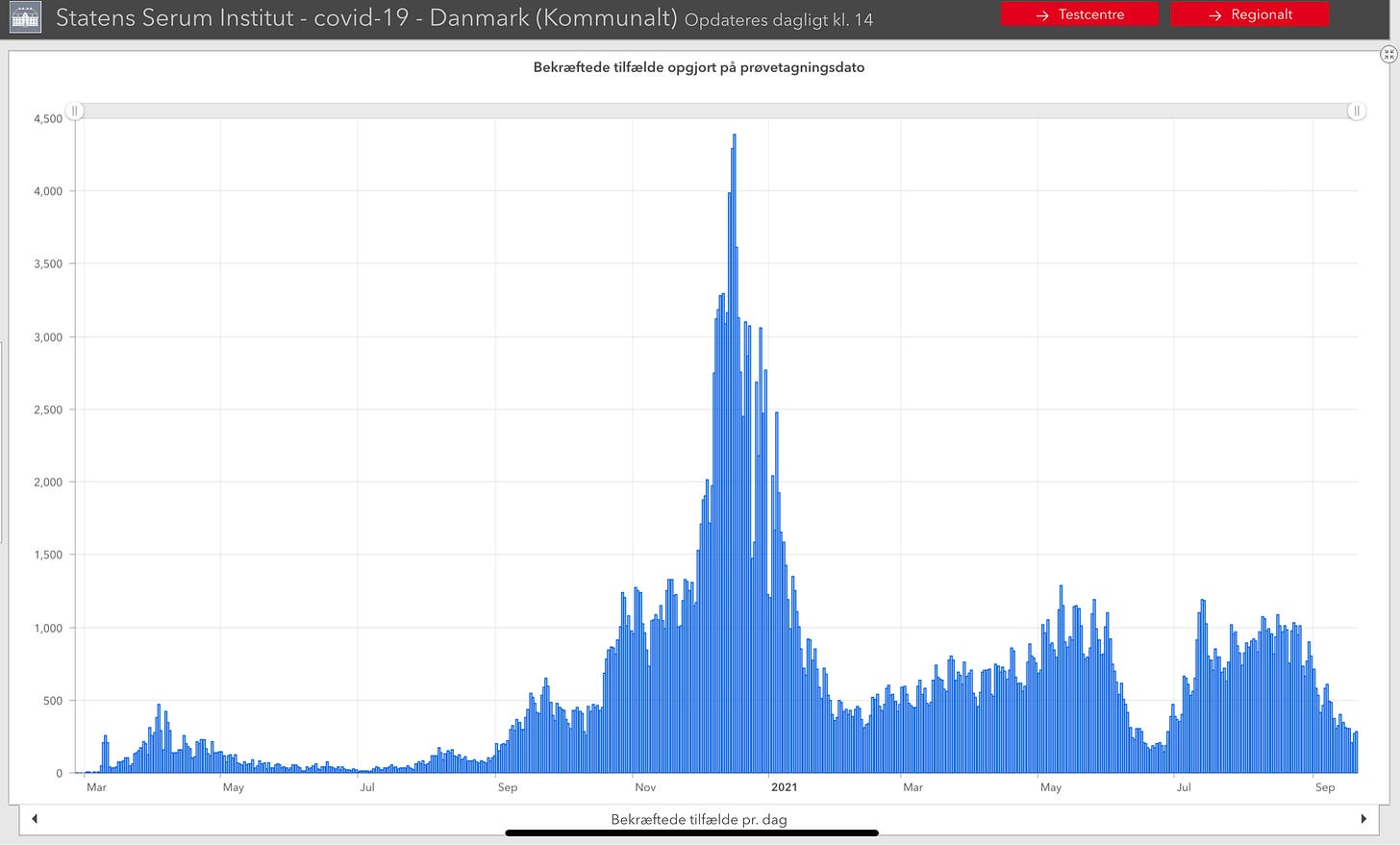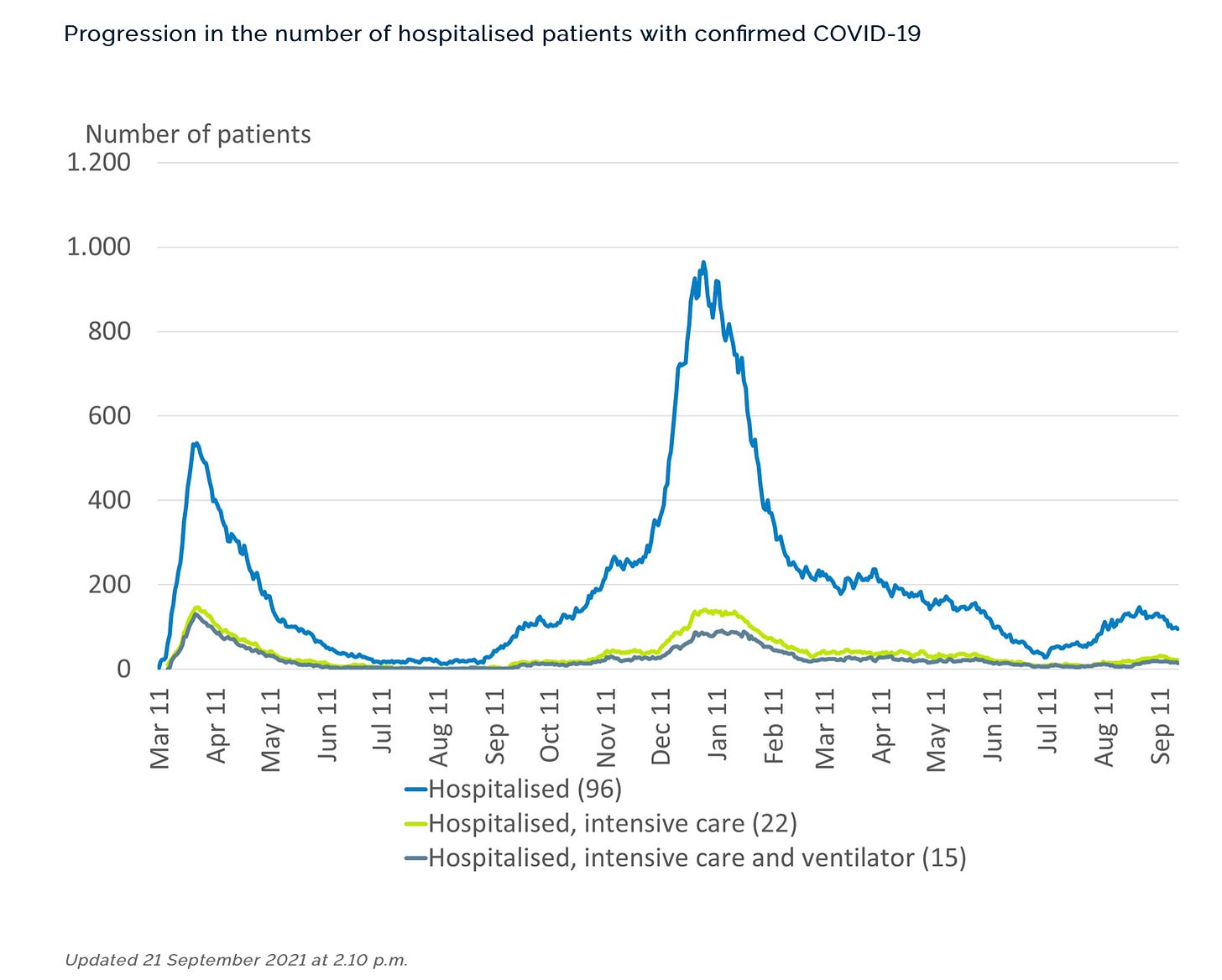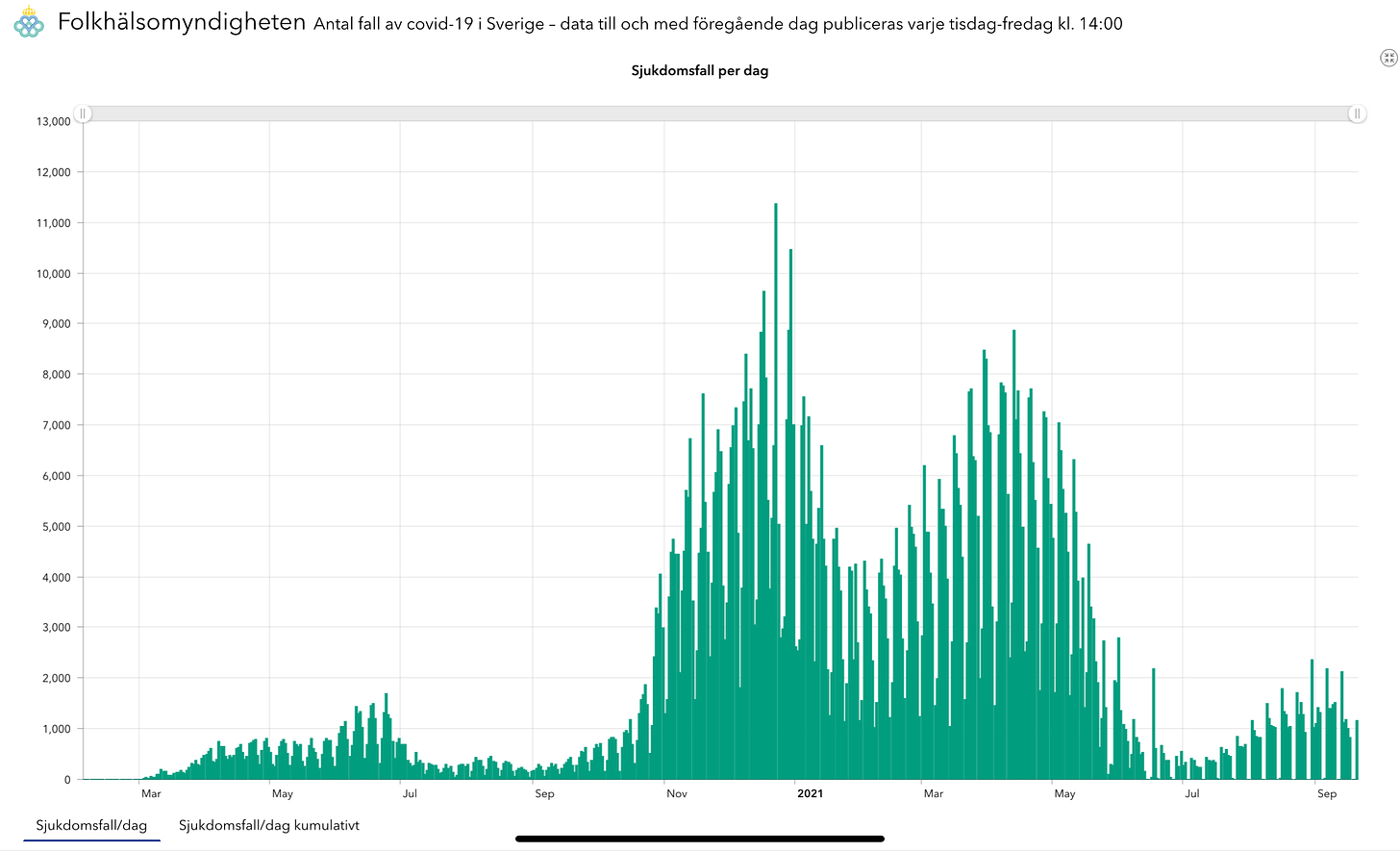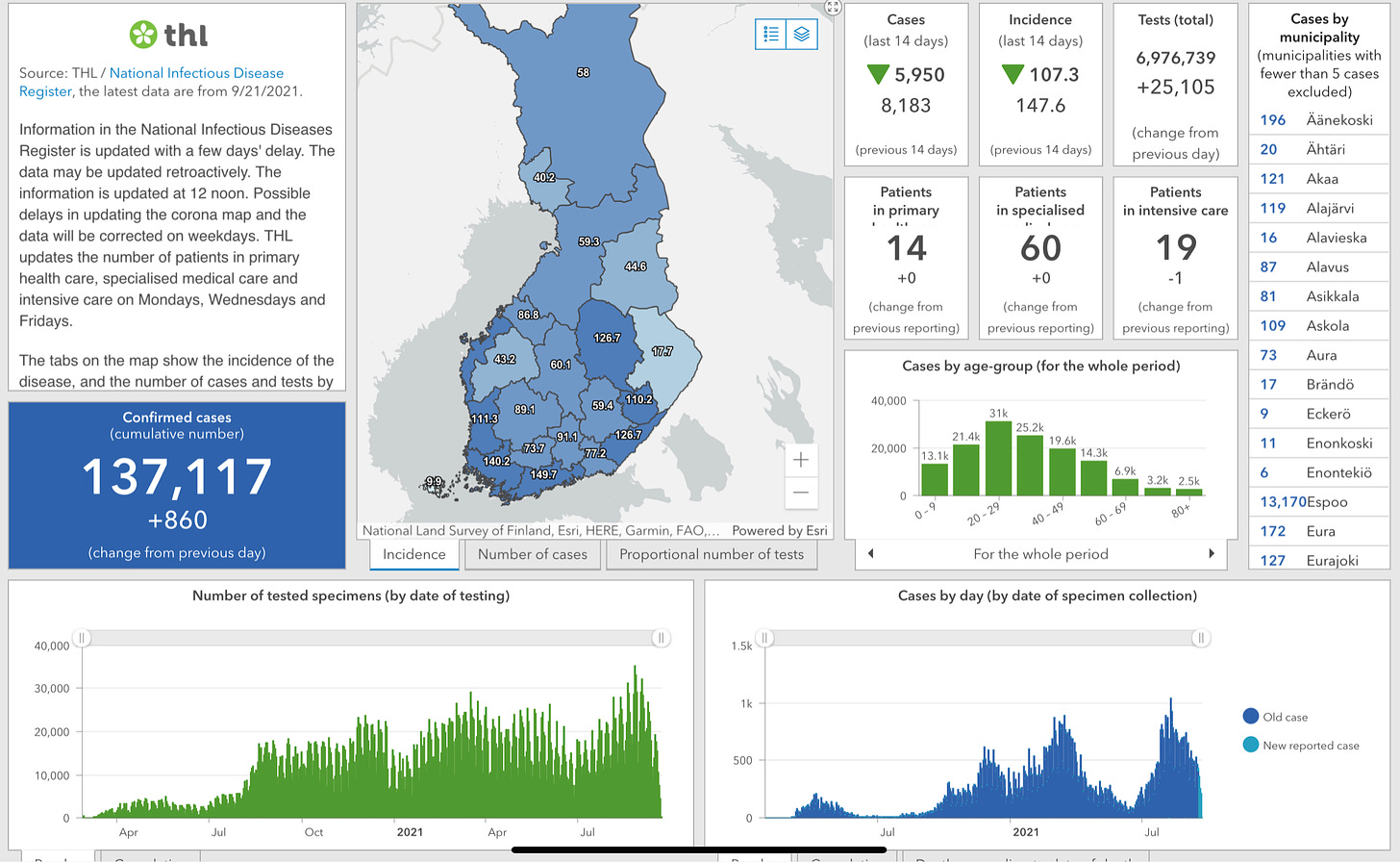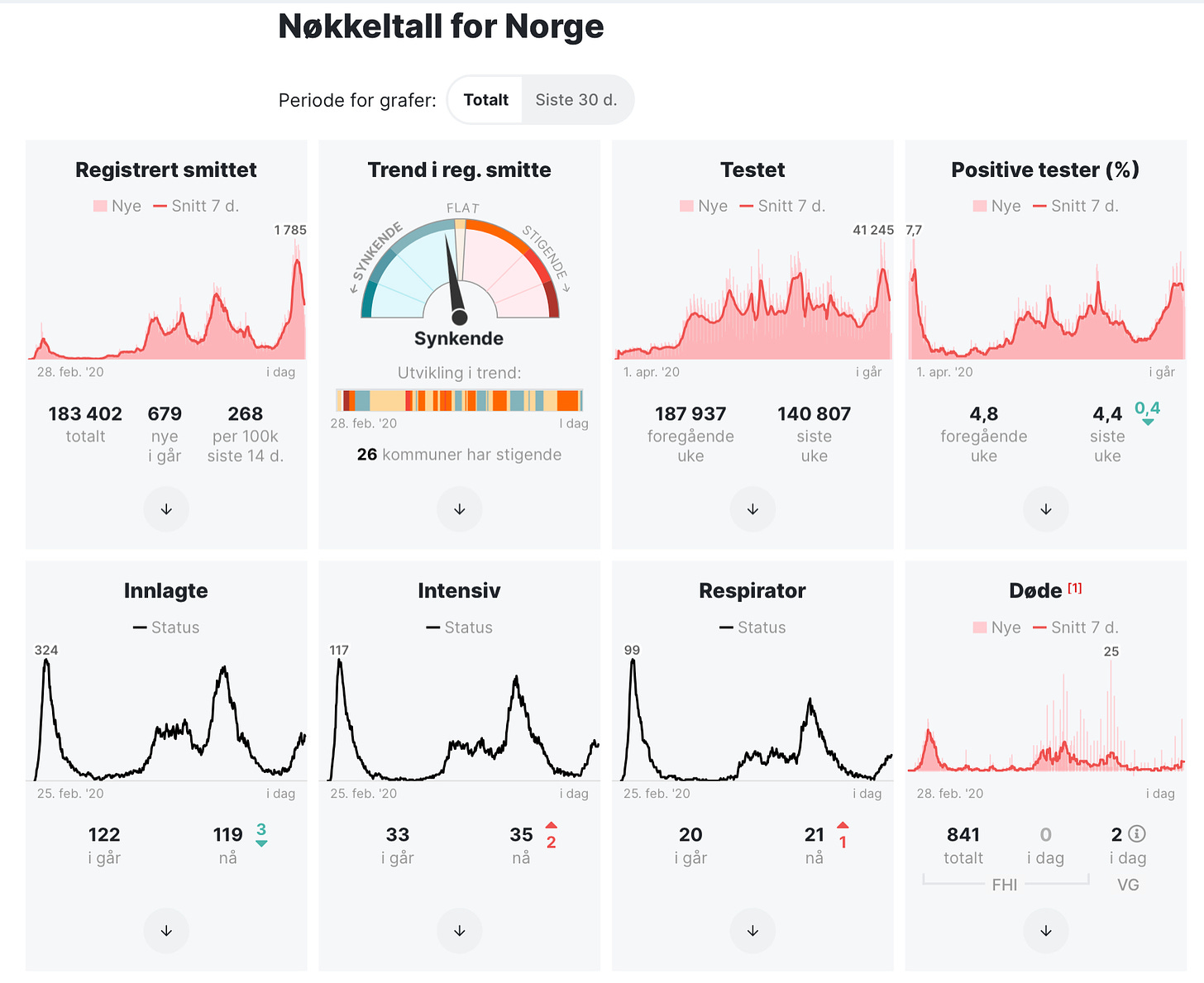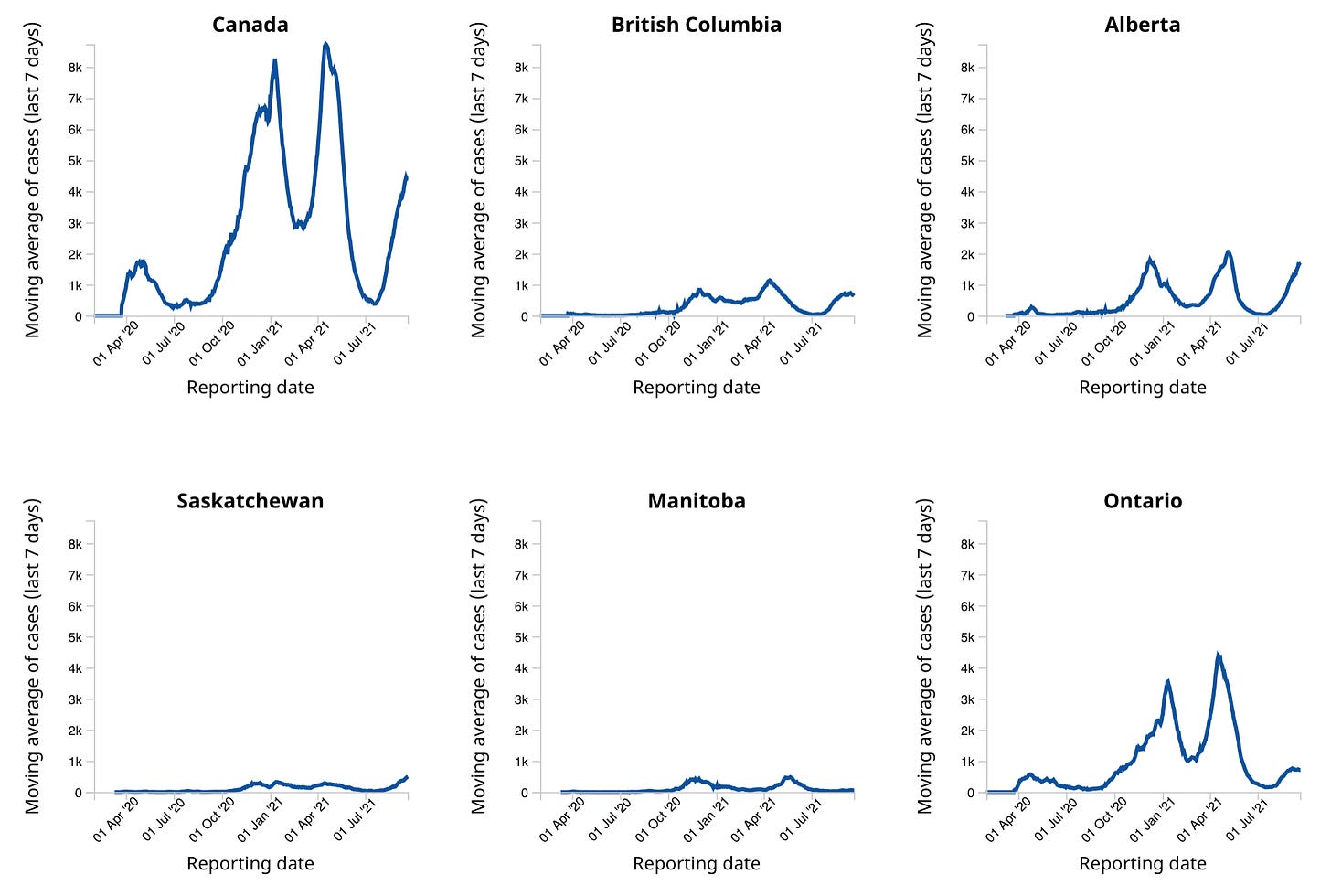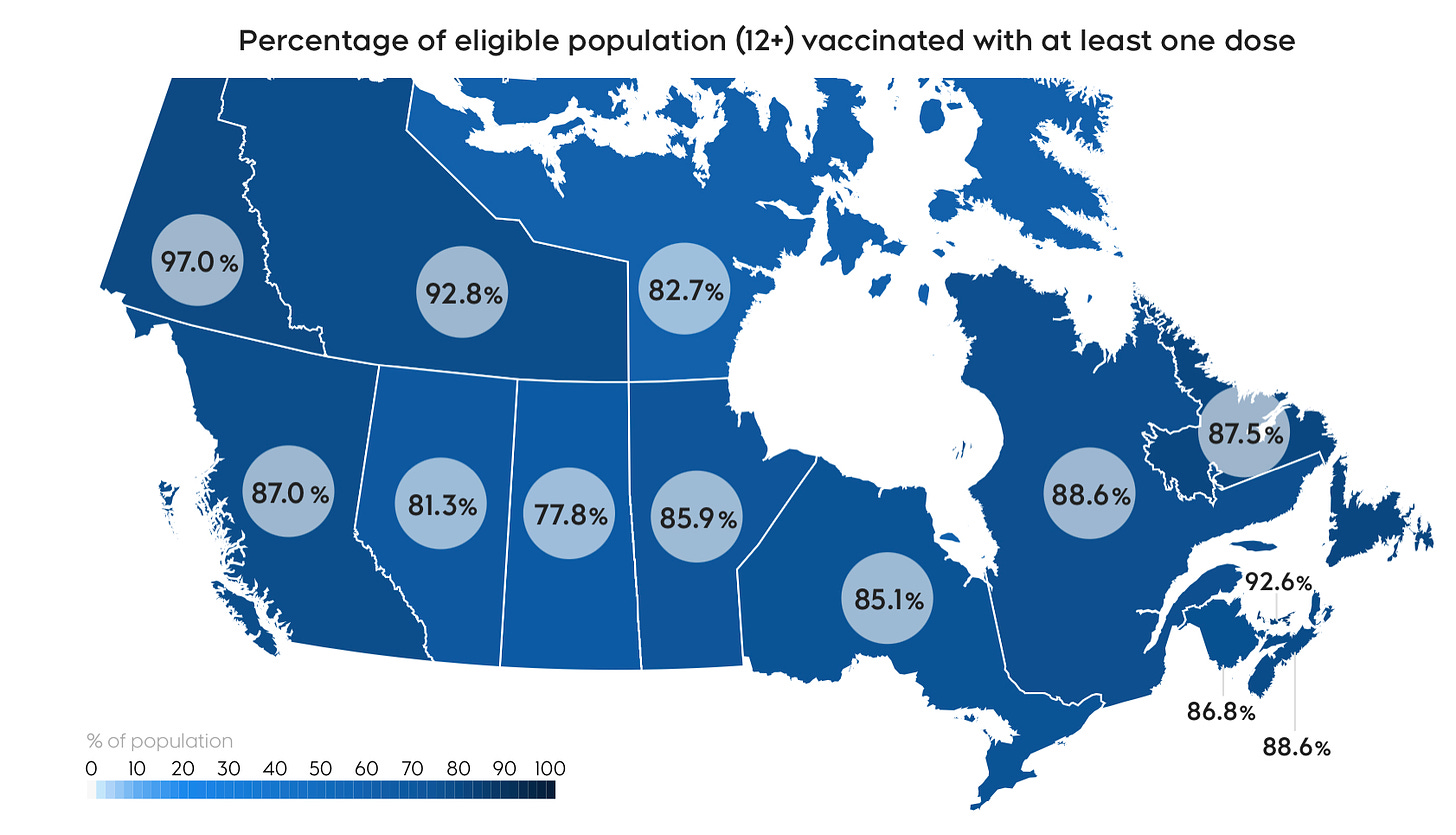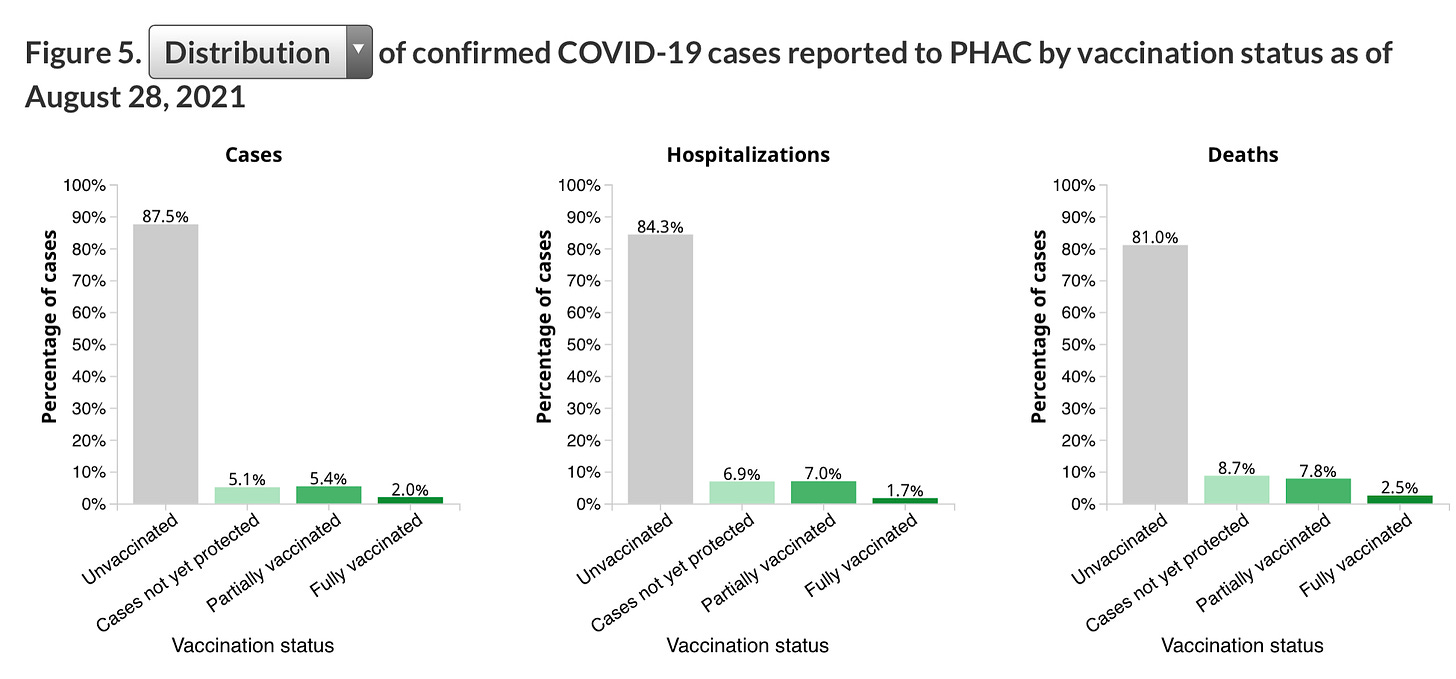🇩🇰
The Danish National Board of Health is warning people that the flu season is almost here and that they need to get an influenza vaccination, especially this year. It is concerned about COVID still circulating as the seasonal effect begins to work against us and a possible explosion of influenza cases.
Chief Physician Bolette Søborg:
“Influenza vaccination protects the vulnerable and helps to reduce disease in society, and thus also the burden on hospitals. That is why we hope for an extra high level of support this year. For the vast majority of Danes, influenza is not a serious disease. But for some people, the flu can develop very seriously and, at worst, be life-threatening. Every year, between 1,000 and 2,000 Danes die as a result of complications from influenza. Therefore, the National Board of Health recommends that people at special risk accept the vaccination offer.”
This year, the health board is offering the influenza vaccine for free to millions of people.
Anyone in the following groups can get a flu shot for free.
Everyone over 65 years of age
People with chronic diseases like Chronic lung disease, Cardiovascular disease, Diabetes 1 or 2, Congenital or acquired immune deficiency, Affected respiration due to decreased muscle strength, Chronic liver and kidney failure, and other chronic diseases where the condition, according to the doctor's assessment, causes the flu to pose a serious health risk.
Pregnant women in the 2nd and 3rd trimester
People with severe obesity
Children aged 2-6 years
Early retirees
People living in the same home as an immunocompromised person
Health and care home staff.
People who are covered by the free influenza vaccine offer can book their shots with their doctor, or at a pharmacy, or any other facility where they usually get vaccinated.
The agency stresses that for the first three weeks only the target groups will have access to the flu shot and it won’t be available, even for a price, to anyone else yet.
The vaccination against influenza for children aged two to six years old is a first for Denmark.
"We are in a special situation this year, and therefore we want to prevent all the disease that we can. This applies for families with children who have been under pressure during the pandemic as well as for vulnerable people who are typically at increased risk of serious illness, regardless of whether they become infected with COVID or flu. And of course we want to take good care of the healthcare system and prevent it from becoming overwhelmed.”
The influenza vaccination program will begin October 1.
-
For a 3rd week, Denmark’s COVID contact number (reinfection rate or R0) remains at 0.7, indicating that we still have a declining pandemic situation. Health Minister Magnus Heunicke says while there is more uncertainty due to far less testing, all other indicators show “we stand in a good place.”
-
Denmark will double the number of COVID vaccine doses it is donating to the global COVAX initiative from 3 million doses to 6 million. Danish Statsminister Mette Frederiksen made the announcement while attending United Nations meetings in New York today.
“Denmark is in solidarity in the global fight against COVID-19. No one is safe until everyone is safe.”
-
On the vaccination front to date, 4,445,105 1st vaccine doses (75.8% of the total population) have been administered while 4,339,829 people (74%) have been fully vaccinated.
Yesterday just 6,995 total vaccinations were done, of which 1,259 were 1st doses.
As for booster shots, Health Minister Magnus Heunicke said today that 42,198 third doses have been administered so far, covering 46.5% of all nursing home residents.
-
Denmark is reporting 344 COVID infections and three more coronavirus deaths in the last day.
Yesterday there were 77,699 total corona tests done, 37,200 PCR and 40,499 rapid, for a (PCR only) positivity percentage of 0.92%.
-
COVID hospitalizations (96) have dropped (-3) while the number of infected people in an ICU (22) is unchanged, and of those the number on a ventilator (15) also edged downward (-2).
-
Region Midtjylland is tweaking its vaccination operations. Tomorrow will be the last day for vaccination sites in their current locations in Ikast, Lemvig,and Struer. They three are operating out of Sportscenter Ikast, Lemvig Idræts- og Kulturcenter, and Struer Energi Park and they close for good at 3:00pm Wednesday.
Senior Nurse Dagny Kloster:
“The current halls have been ideal for creating a good flow where we have been able to vaccinate many people in a very short period of time. Now demand is lessening, and the time has come for the halls to be used for their original purpose again.”
On October 4, a new vaccination site will open in Lemvig and on October 14 Struer will also see a new place to get the jab.
The region is also adjusting operating hours at vaccination clinics in Ringkøbing, Herning, and Holstebro.
🇬🇱
Greenland has registered a record high number of COVID infections today. KNR reports that active cases hit 126 today after 35 positive test results in the capital city of Nuuk. Last week, Greenland again tightened COVID restrictions in an effort to bend down the infection curve. Proof of vaccination or a negative coronavirus test no more than 48 hours old is required to do things like eat at a restaurant, go to a bar, or work out in a gym.
🇸🇪
Sweden has added 1,986 infections and another 15 corona deaths since its last update on Friday.
To date, 7,094,601 1st vaccine doses (83.1% of population 16 years old and older) and 6,396,156 2nd doses (74.9%) have been administered.
-
Sweden is seeing COVID deaths in nursing homes again, sparking concern and a call for booster shots to be administered to elderly people in care sooner rather than later. SVT Nyheter is reporting that four seniors in care have died in nursing homes in Region Västerbotten.
Infection Control Dr. Stephan Stenmark:
“It would be good if we could give a third dose now in nursing homes. It's worrying. We do not want any deaths that can be avoided. It is worrying that this is the case. We all agree that a third booster dose is needed for this group. I think it would be good if we could start soon.”
The region cannot start administering a booster shot on its own and must wait for national guidelines.
-
A clinic focusing entirely on assessing and rehabilitating those who suffer from long-COVID has opened in Region Uppsala. The clinic will take patients 18 years old and older from all over Sweden who are still batting coronavirus symptoms long after recovery. People must be referred to the clinic by their doctor.
Chair of the Health Board Malena Ranch in a press release today:
“It is very welcome news that we can now open a clinic that can offer people with long-term symptoms after COVID a collective and structured place to seek answers and get treatment.”
🇫🇮
Finland has registered 860 infections today but numbers likely include cases over the last two days due to a technical issue impacting reporting.
So far, 4,105,295 1st vaccine doses (73.3% of the total population) and 3,272,511 2nd doses (58.6%) have been administered.
-
Authorities in Helsinki have proposed that COVID restrictions on public events, sports, and other leisure activities in Finland’s capital region be lifted as of October 1. Helsinki’s Mayor Juhana Vartiainen praised the move as the beginning of a return to normal.
-
The Finnish Government will submit a proposal to parliament to amend legislation to allow for the EU COVID digital certificate to be used within the country. YLE is reporting that it would allow private businesses to mandate the coronapas for entry to anyone over the age of 12 in areas where COVID restrictions are in place.
🇳🇴
Norway has added 901 infections and had no new virus deaths since yesterday’s update.
COVID hospitalization (119) are down (-3) while ICU numbers (35) are up (+2) and ventilator numbers (21) are also up (+1).
So far, 75.59% of Norwegians 18 years old and older have had one vaccine dose and 66.03% have had both.
🇳🇴 🇬🇧
The Norwegian Institute of Public Health says the UK will soon accept people who are cross-vaccinated. Norway and the EU had been lobbying the United Kingdom to make the change after some travelers with two doses of two different vaccines were not allowed to enter the country.
NIPH Assistant Director Geir Bukholm:
“It is gratifying that the entry restrictions that the UK has had for those who have been vaccinated with two different vaccines are now being removed. Those who have experienced this as limiting can now be given a second dose, and it is good for them to get the best possible protection.”
Studies from the institute found that combining Moderna and Pfizer doses provided equal protection against COVID as two doses of either vaccine. Studies have also shown that combining the two mRNA vaccines does not increase the risk of serious side effects.
The issue was exacerbated when the Nordic countries scrapped the use of AstraZeneca, a vaccine used to largely target healthcare workers who then had to switch to a second dose of an mRNA vaccine.
Other than Norway there are at least 15 other countries that have had to fall back on cross-vaccination, which has also impacted travelers.
The NIPH says Germany has also changed its rules to accept people with two doses of two different vaccines as being fully vaccinated.
The UK will make the move official and count cross-vaccinated travelers as fully vaccinated on October 4.
🇩🇪
An awful situation in Germany where a gas station attendant was shot and killed after getting into an argument with a customer who refused to wear a mask. Even worse, since the killing, COVID deniers have been posting support for the killer on social media.
Foreign Minister Heiko Maas was quick to react on Twitter:
“A young person was killed. It is unthinkable to celebrate the killing online. The hatred and the encouragement from the people that are radicalized divides our society and kills people. This has no place in our country.”
According to Reuters, a suspect has been arrested and told German police that he felt stressed by the corona restrictions.
🇪🇺
The European Union Commission has signed a third deal in an effort to secure therapeutic COVID treatments. This latest agreement is for a monoclonal antibody treatment from the pharmaceutical company Eli Lilly. The treatment from the company uses a combination of bamlanivimab and etesevimab, both monoclonal antibodies, to treat serious COVID patients who are not yet on a ventilator. The antibodies mimic the immune system’s ability to fight the coronavirus by fusing to the spike protein on the virus, blocking its ability to attach to human cells.
The medication is currently under a rolling review by the European Medicines Agency and is not yet approved for use in the EU.
EU Health Commissioner Stella Kyriakides:
“Over 73% of the EU adult population is now fully vaccinated, and this rate will still increase. But vaccines cannot be our only response to COVID. People still continue to be infected and fall ill. We need to continue our work to prevent illness with vaccines and at the same time ensure that we can treat it with therapeutics.”
18 EU member nations have signed a joint procurement agreement for the purchase of up to 220,000 treatments when the treatment is approved for use by the EMA.
💉
Johnson & Johnson says that a second dose of its COVID vaccine, taken no less than two months apart, results in stronger protection against the coronavirus. The company made the announcement today in a press release.
According to Johnson & Johnson, a second dose of its vaccine increases its efficacy to 94% against symptomatic infection and 100% against severe disease. However, the claim has caused some confusion as prior data showed that a second dose of Johnson & Johnson, given six months after the first, resulted in even higher antibody levels.
🇪🇺✈️🇺🇸
A day removed from the White House announcing it would open its borders to all vaccinated, non-essential travelers arriving by air, there have been some developments. One major problem is with the AstraZeneca vaccine. The vaccine is not approved for use by the US Food and Drug Administration, meaning the United States does not recognize someone with two doses of AstraZeneca as being fully vaccinated. AstraZeneca was widely used across Europe, potentially posing a major problem for some looking to travel to the USA.
In an interview with Agence France-Presse, the European Commissioner for Internal Market, Thierry Breton, said he took the issue up with White House pandemic response coordinator Jeff Zients. Breton said Zients sounded positive a solution could be found, but also added “for the other vaccines, for AstraZeneca in particular, their health agency would decide.”
Breton says the restrictions against travelers from the European Union entering the United States “no longer made any sense.” While Europe outpaces the U.S. on vaccinations “we are on the same restrictions as China, Iran, and other countries. It makes no sense at all.”
In another twist, Reuters has seen documents it says show that when unvaccinated foreign nationals are admitted to the U.S. on humanitarian grounds, they must agree to be vaccinated upon arrival. When the United States eases restrictions on air travelers in November, it will require nearly all travelers over the age of 12 to show proof of vaccination in order to enter the country. Exemptions to that policy will include "children, COVID-19 vaccine clinical trial participants, and humanitarian exceptions for people traveling for an important reason and who lack access to vaccination in a timely manner.” It now appears the last group will be required to agree to vaccination on arrival. How that will work and if an associated quarantine will be mandated is not yet known.
🇬🇧
Some concerning signs in British schools. The Guardian is reporting that last week more than 100,000 school children in the United Kingdom were at home isolating due to either confirmed or suspected cases of COVID. Of those, the newspaper says 59,000 are confirmed infections, the highest since the start of the pandemic.
The UK began the school year almost as normal, relying on free at-home test kits that students are required to use twice a week to screen for infection.
🇮🇳
India will resume COVID vaccine exports next month. This is an important development as India is the world’s largest vaccine producer. It was one of the biggest suppliers of the AstraZeneca vaccine to developing countries and to the COVAX initiative. However, the country stopped exporting COVID vaccines in April to focus on its own population after it was hit with a horrifying infection wave that overwhelmed hospitals and led to numbing numbers of COVID deaths.
Today, India’s health authority announced it will resume exporting COVID vaccines in October. India will prioritize the COVAX program first and then neighboring countries “at a later stage.” The country expects to produce one billion vaccine doses in the last three months of the year.
🇨🇦
Canada reported 3,852 infections and another 39 deaths yesterday. Nationally, the infection curve continues to push upward, driven largely by an out-of-control situation in Alberta and, to a lesser degree Quebec.
So far, the Canadian vaccination effort has administered 28,694,370 1st vaccine doses (75.37% of the total population) while 26,429,023 people (69.42%) are now fully vaccinated.
It continues to be the pandemic of the unvaccinated in Canada.
In Ontario today there were 574 infections, of which 434 were people who were either unvaccinated or who had one dose. There are 330 people in hospital with 303 either not vaccinated or partially vaccinated. Of the additional 179 people in an ICU that number is 170.
Quebec reported 587 new COVID cases.
In Atlantic Canada, New Brunswick has seen its second highest ever number of new infections today with 65. Newfoundland and Labrador reported 16 new infections. Nova Scotia has 25.
Manitoba saw 66 new corona cases
There were 369 infections and five more deaths in Saskatchewan today.
Alberta recorded 4,633 infections and 22 deaths over the last three days. There are 738 people in hospital of which 79.1% are unvaccinated or have a single dose. There are another 216 people in an ICU and there that number rises to 91.2%.
B.C. logged 1,692 infections and 11 deaths over a three day period. There are 307 people in hospital, with 156 of them in an ICU. Of those in intensive care, 93% are unvaccinated.




